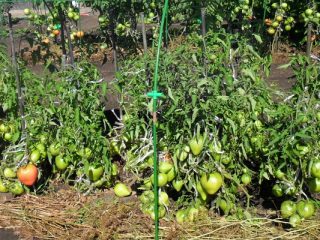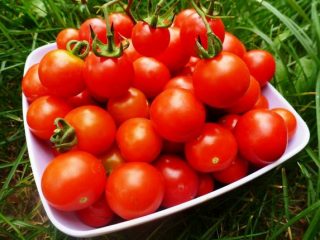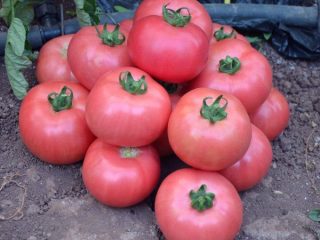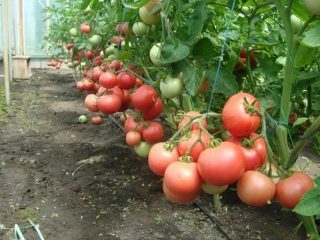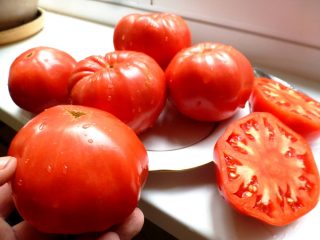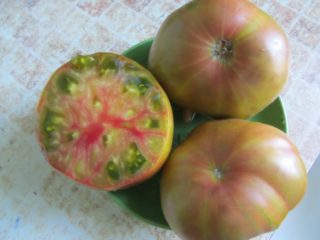Content
- 1 Is it possible to water tomato seedlings with succinic acid?
- 2 How does succinic acid affect tomato seedlings?
- 3 Rules for preparing the solution
- 4 How to feed tomato seedlings with succinic acid
- 5 Feeding frequency
- 6 Rules for storing the drug
- 7 Precautionary measures
- 8 Conclusion
- 9 Reviews on the use of succinic acid for tomatoes
Succinic acid is a pharmaceutical preparation widely used in horticulture. Many gardeners use a biological stimulant to fertilize vegetable crops at all stages of development. Succinic acid for tomato seedlings serves as an immunomodulatory agent that helps strengthen weak seedlings and accelerate the growing season.

Acid is a biostimulant that promotes the active formation of plants
Is it possible to water tomato seedlings with succinic acid?
The question of whether it is possible to use succinic acid for tomato seedlings is very often asked on special gardening forums. It is well known that this popular drug of natural origin is used as a biologically active substance to increase immunity, improve well-being, and maintain the tone of the human body. But the natural substance is useful not only for people.According to the practical experience of many generations of gardeners, using succinic acid for tomato seedlings is not only desirable, but also necessary.
How does succinic acid affect tomato seedlings?
Succinic acid is a substance produced by all living organisms during the processing of proteins, fats and carbohydrates. The natural compound is widely used in crop production. The use of succinic acid for tomato seedlings improves a number of important processes in plant tissues, including:
- photosynthesis;
- cellular respiration;
- amino acid synthesis;
- transport of ions.
The organic compound saturates cells with energy. Acid has the following effects on tomato seedlings:
- accelerates the process of seed germination;
- strengthens seedlings;
- promotes the development of the root system;
- activates the growth of green mass;
- improves the absorption of organic substances;
- stimulates the restoration of damaged tissues;
- softens the process of adaptation to environmental conditions after transplantation into open ground;
- increases resistance to infections and pests;
- reduces the amount of nitrates in the soil;
- accelerates the process of fruit ripening;
- increases productivity.
At the same time, experts in the field of plant growing note that the treatment of tomato seedlings with succinic acid must be carried out while observing the dosage. An increase in the concentration of the substance leads to acidification of the soil. In addition, one should not assume that the powder contains all the substances necessary for plants. The biostimulant does not contain the necessary macro- and microelements, and therefore the seedlings require additional fertilizers.

To deoxidize the soil after acid treatment, use wood ash, dolomite flour or ordinary chalk
Rules for preparing the solution
When planning to fertilize tomato seedlings with succinic acid powder, you should know how to dilute the drug. When preparing the solution, you must adhere to the following rules:
- maintain proportions;
- dilute the powder in settled, warm water;
- wait until the substance is completely dissolved.
To soak seeds, as a rule, use a 2% solution prepared from 2 g of succinic acid and 100 ml of water. For the purpose of watering young seedlings, use a liquid with a lower concentration - 0.01%. To obtain a solution with a small amount of active substance, 1 g of powder is diluted in 1 liter of water. As a root feeding and for spraying grown tomato seedlings, the concentration of the drug is increased to 0.2%. When preparing the solution, use 2 g of powder per 1 liter of water.
When feeding tomato seedlings with succinic acid in tablets, it is necessary to calculate the amount of the drug. The packaging indicates how much substance is contained in each pill. For example, a tablet contains 0.25 g of active ingredient. Four tablets are required for 1 liter of water. It is recommended to thoroughly crush them into powder before use.

Biostimulant Yantarine containing organic acid is used exclusively in crop production
How to feed tomato seedlings with succinic acid
Fertilizing of seedlings is carried out by introducing an acid solution under the root and through irrigation of the seedlings.The active substance, in any application, is quickly absorbed by plant tissues. The diluted preparation is also used for soaking seeds. Organic acid increases the germination of seed and optimizes the germination process.

Amber powder can be used in combination with mineral and organic fertilizers
How to spray tomato seedlings with succinic acid
Spraying stimulates the development of seedlings, protects against diseases, and accelerates the adaptation process after picking or transplanting. It is advisable to carry out the procedure in the morning to prevent leaf burns.
How to water tomato seedlings with succinic acid
It is important to observe not only the concentration of the substance, but also to follow the basic rules of agricultural technology. Watering the solution at the root is carried out after abundant irrigation with clean water. A concentrated product can destroy the plant. For root application, it is convenient to use a syringe, pipette or miniature watering can with a long, thin spout.
Feeding frequency
Systematic feeding of tomatoes is an important condition for obtaining strong plants and a bountiful harvest. Agricultural technicians have developed instructions for using succinic acid for tomato seedlings. Drugs and biostimulants based on it are used according to the following scheme:
- Feeding tomato seedlings with succinic acid is organized 1-2 days after picking.
- The second procedure is carried out two weeks before planting the bushes in a permanent place.
- The next feeding is planned immediately after planting the tomato seedlings in a permanent place.
Succinic acid protects tomato seedlings from stretching and is an effective remedy in case of slow seedling growth. It is also recommended to water or irrigate the garden crop with a solution before and immediately after flowering. The procedure is aimed at the formation of many ovaries. If there is insufficient fruiting, it is recommended to spray the bushes with a solution of the drug.
The nuances of using a natural compound are presented in the video:
Rules for storing the drug
Natural acid, classified as a dietary supplement, must be stored in the same way as medicinal drugs. Tablets, powder, biostimulants should be kept in a place away from direct sunlight, away from heating devices. Optimal storage temperature – from +10 0From to +25 0C. After release, the drug should be used for four years.
The working solution must be diluted immediately before use. If stored for a long period of time, the active substance loses its beneficial properties.
Precautionary measures
To ensure safety when diluting and using an acid solution, certain rules should be followed. Precautions when interacting with powder and tablets are as follows:
- it is necessary to use protective equipment - technical gloves, glasses;
- in case of contact with skin and mucous membranes, the substance must be washed off under running water;
- tablets and biostimulant should be kept out of the reach of children,
Do not ignore compliance with safety rules. Otherwise, unpleasant consequences such as skin irritation and damage to the cornea may occur.If a significant amount of the drug enters the gastrointestinal tract, it causes vomiting and diarrhea.
Conclusion
Succinic acid for tomato seedlings is used at all stages of the growing season - soaking seeds, watering and spraying seedlings. Correct use of the drug promotes the growth of vegetable crops, strengthening the root system and increasing fruiting.

